Cognivue: Dementia Early Detection
Cognivue is the world's first FDA approved medical device for measuring late-life cognitive impairment in primary care. We are now raising capital to build our sales and marketing programs.
Rochester, NY United States Alzheimer(s) Disease Equity Raise MedStartr Ventures challengeAbout our project
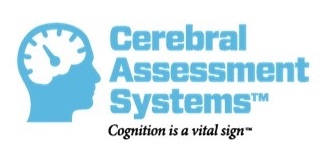
The problem we solve: There are 10 million dementia patients in the US, half with Alzheimer's disease, and an equal number with other late-life cognitive disorders, costing about $200 Billion/year. The aging of our population is making these problems worse every year. We now rely on specialist practitioners and specialized high-cost tests. We need a new care model to empower accurate, accessible, and affordable cognitive care in primary care settings.
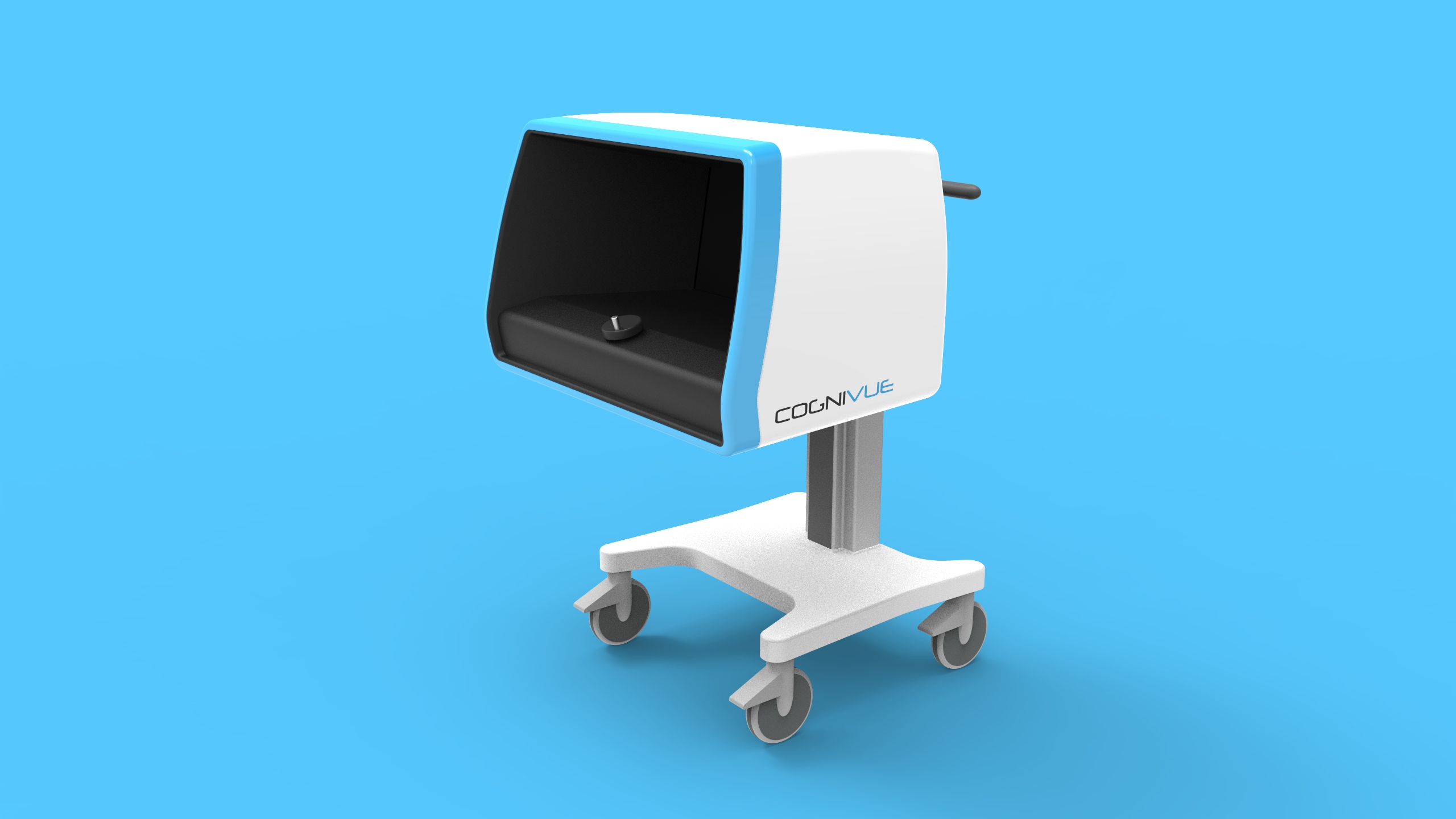
About our solution: CAS was founded to provide cutting-edge cognitive neurological assessment tools to healthcare providers worldwide. The Cognivue system uses adaptive psychophysical algorithms to create an artificial intelligence platform for individualizing, administering, and scoring neurological tests. Cognivue is run by office-staff, done in 10 mins, and immediately reports to the practitioner.
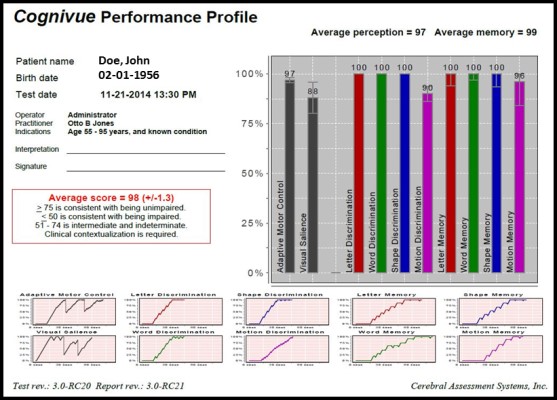
Progress to date:
Cognivue is extensively patented, FDA approved, and its use is being reimbursed by insurers. Initial sales efforts have placed Cognivue in over two dozen medical practices and hospitals. Practitioner use has continually increased during these first few months. The expanding CAS direct sales program is now coupled with distributor sales and lead generation under contracts with both Henry Schein and McKesson. Introductory sales are for $20k financed over 5 years. Additional testing tools are in development for a range of other disorders.
About Our Team
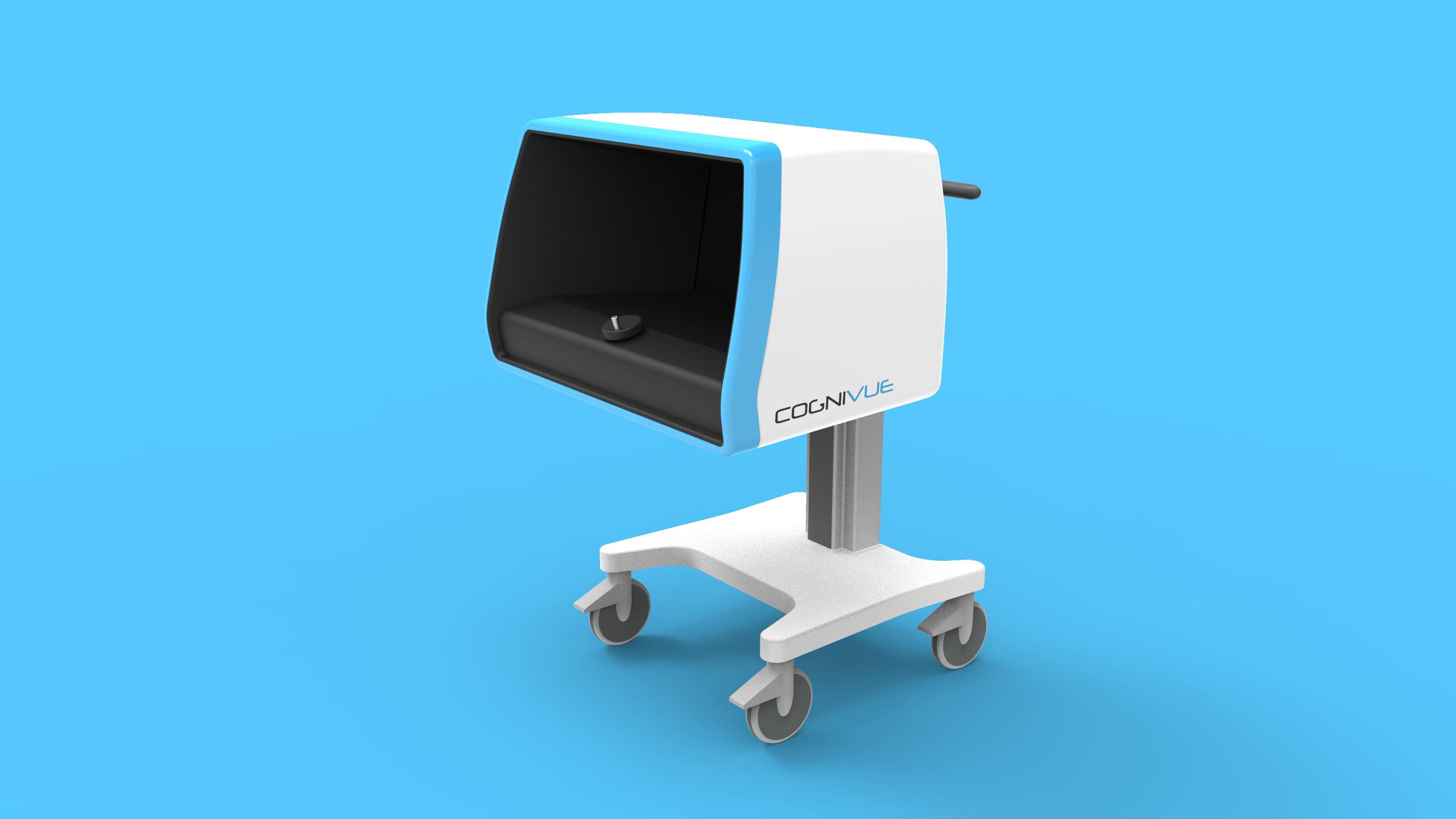
Creator: Charles Duffy
Bio: Charles J. Duffy, MD, PhD; CAS Founder and CEO Prof. of Neurology at the Univ. of Rochester Medical School with a focus on the direct care of patients with late life cognitive disorders, chiefly dementia, and research on brain mechanisms of late-life cognitive decline. In 2005, I Founded CAS to use our scientific work to improve dementia care. I worked as CSO in CAS to 2012, then took on the responsibilities of President and CEO. I am the inventor of the CAS technology and the creator of CAS's IP portfolio. I designed and directed the FDA studies that led to CAS's 1st-in-the-world approval of a dementia test. I led efforts to secure cognitive testing reimbursement to make cognitive care accurate, accessible, and affordable. I am now leading the commercialization program with initial sales and productive usage around the country. • Founder of Cerebral Assessment Systems, 2005 • Director of Cognitive Neuroscience Lab, 2003 • Tenured Professor of Neurology, 2002 • Assist Professor, Univ. of Rochester Med. Sch., 1993 • Senior Staff Fellow, Natl Institutes of Health, 1993 • Neurology Resident, Mass. General Hospital, 1988 • Medical Intern, Johns Hopkins Hospital, 1985 • MD and PhD, Johns Hopkins Medical School, 1984 • AB, Harvard College, 1976
Title: CEO
Advanced Degree(s): MD, PhD
About Our Company
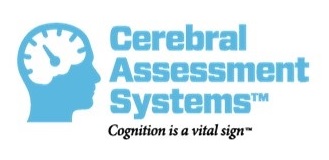
Cerebral Assessment Systems, Inc.
Location: 2085 Brighton Henrietta Town Line Road
Rochester, NY 14623
US
Founded: 2005
Website: http://cerebralassessmentsystems.com/
Facebook: https://www.facebook.com/CerebralAssessmentSystems/
Product Stage: In the Market
YTD Sales: Less than $250,000
Employees: 5-10
How We Help Patients
Cognivue provides our patients, their families, and healthcare systems the ability to know where they stand. This knowledge empowers care planning so that patients can adapt, families can support, and healthcare systems can serve their needs. Two other issues are critical to our mission: 1) Cognivue’s contributions to the early detection of late-life cognitive decline gives patients their best chance to intervene in the treatable dementias before impairment limits their options. 2) Cognivue can accelerate and facilitate the testing and development of new treatments on a global scale with full integration into national and international patient databases that are building the infrastructure needed to test new treatments.
How We Help Physicians
Doctors know that the #1 health concern of their older patients is cognitive decline. The current care model sends patients to major medical centers for costly diagnostic procedures and evaluations. This process complicates care: 1) It is not financially or geographically practical for all patients. 2) It transfers care away from the practitioners who are known and trusted by patients and families. 3) It shifts care from a cost-effective community centered model, to a costlier tertiary care model. Cognivue empowers primary care providers to quickly assess patients in their medical practices, follow them over time, and institute treatments under continued monitoring. Cognivue also provides practitioners with a new revenue stream that links them to caring for the whole patient, accessing new revenue, and streamlining work flow. Cognivue opens a path to accurate, accessible, and affordable care in a community-centered primary care model.
How We Help Hospitals
Cognivue can be an important resource for hospitals, integrated delivery networks (IDNs), and healthcare agencies: 1) Cognivue enables large-scale cost-avoidance by providing a quantitative assessment of impairment so that expensive testing is more appropriately allocated to those who are truly impaired. 2) Cognivue facilitates institutional justification of appropriate extensions of insurer approved lengths-of-stay during hospital admissions in which patients show impairment that may have resulted from their acute illness or the complications or side-effects of care. 3) Cognivue enables discharge planning that includes an assessment of every patient’s ability to sustain themselves on the prescribed regimen. Augmented discharge planning will avoid risky and unpaid re-admissions and guide the appropriate allocation of outpatient resources and support services
How We Help Partners
Cognivue’s testing and cloud-based, HIPAA compliant data serves the needs of healthcare stakeholders.
Insurers benefit from it two ways: 1) Cognivue enables the evaluation of patients’ cognitive health as part of routine qualifying medical exams. This is particularly relevant to insurers’ new focus on long-term care plans for home-based or residential support. 2) Cognivue allows the timely review of practitioner orders for invasive and expensive tests and treatments, showing that the patient is indeed impaired.
Pharmaceutical companies benefit in several ways: 1) Cognivue will accelerate R&D programs. Most obviously in the development of new therapies for late-life cognitive decline, breaking the bottle-neck of data acquisition. Cognivue will provide HIPAA compliant, cloud-based, real-time access to data from practitioners involved in trials, and expand the number of those practitioners, to expedite the process. 2) Cognivue’s technology was developed, in part, in testing monkeys’ cognitive abilities. Thus, the same technology can be applied in pre-clinical animal studies and the subsequent clinical trials, improving the comparability of data sets, facilitating the review of candidate treatments, and enhancing expectations of comparable pre-clinical and clinical findings. 3) All drugs, regardless of the conditions for which they may be indicated, should undergo testing for potential adverse effects on patient cognition. This safety surveillance can readily be maintained in newly FDA mandated post-marketing monitoring.
Innovation Details
Intellectual Property Summary
CAS owns 19 granted US patents on the Cognivue testing technology and related algorithms with patent internationalization now underway. Additional patent filings are now being planned to cover new technologies under development in CAS.
Clinical Information
CAS conducted three clinical trials (n~500 per study) over 6 years to compare Cognivue to batteries of standard tests. These studies demonstrated Cognivue’s safety, accuracy, and reliability and led to FDA clearance.
Regulatory Status
In 2015, Cognivue became the world’s first FDA approved dementia test. Approved for use with patients >54 years old.
How we will use the funds raised
1) Update manufacuring for quality, usability, and cost control.
2) Create a marketing program to reach doctors and patients.
3) Expand direct sales staff and distributor partnerships across US.
Thank You
Our goal is to bring cogntive care to primary care across America and around the world. Our technology can empower healthcare providers, and healthcare systems, to manage late-life cognitive decline in the patient's community with the care providers they know and trust. Cognivue makes cognitive testing accurate, accessible, and affordable.
Investor Info
Market Size
The US market for Cognivue is driven by the need to manage the >$200 billion per year cost of dementia by moving cognitive care into primary care. The clinical and economic benefits include more accessible and effective care, and cost avoidance for the >55 million older adult patient visits per year that generate revenues >$2.5 billion per year. Our new studies will carry Cognivue into markets related to other neurological, psychiatric, and developmental disorders.
Projected 3 Year Growth
Revenue Model
Cognivue is sold to medical practitioners who use the system in the evaluation of late-life cognitive disorders. These disorders include the dementias, as well as a wide variety of other medical and neurological illnesses. Practitioners can evaluate patients who are concerned about cognitive decline, or about whom caregivers or practitioners have such concerns. Practitioners can then follow their patients clinical condition over time for continual care planning and the evaluation of therapeutic efficacy. Pracitioners are reimbursed by insurers for testing and for meeting with their patients, and involved caregivers, for care planning.
Cognivue is sold to hospitals and healthcare systems for the evaluation of cognitive function in older adults as part of evaluating the patients' condition before, during, and after hospitalization, same-day surgeries, and other proceedures (e.g., kidney dialysis, anesthesia, etc.). Cognivue can support discharge planning by assuring practitioners that their patients are ready to be discharged from an acute care setting, avoidng the tremendous dangers and expenses of re-admission. Cognivue also assists in detecting and monitoring the need for continued care services after discharge from acute care settings. Cognivue provides a rapid and cost-effective alternative to more complex and costly cognitive assessment methods to promote the cost-avoidance that is demanded in today's healthcare environment.
Cognivue has tremendous potential to access recurring revenue both by providing new tests and testing services, and by fee-for-service testing contracts with providers, institutions, and government agencies (e.g., DoD, VA, IHS, DoJ).
Competitors
Existing technologies include four varieties: 1) Electronic renderings of paper-and-pencil tests that yield measures linked to psychological constructs regarding mental life. These tests are mainly in the public domain and are subject to alternative implementation. 2) Video games providing at-home practice to train patients out of neurocognitive impairment. The reliability of measures derived from this approach has not been demonstrated. 3) Neuroimaging technologies that are intended to distinguish the structural causes of impairment (e.g., atrophy vs. strokes). These technologies (CT, MRI, PET) require capital investments ($1-5M) beyond reach of practitioners with high per test costs ($1-6k), and radiation exposure. 4) Bioassays in development may suggest molecular mechanisms of disease but will not assess the functional impact of disease on individual patients’ cognitive function.
Cognivue provides an easily implemented alternative based on cognitive neuroscience and expandable to a wide variety of settings.
Traction
Initial sales efforts have placed Cognivue in over two dozen primary care practices and several hospitals. Practitioner use has continually increased during these first few months of ownership. The expanding CAS direct sales program is now coupled with distributor sales and lead generation under contracts with both Henry Schein and McKesson. Introductory sales are for $20k financed over 5 years. This pricing model is to be replaced by a combined fixed cost of $10k plus a $10 per test fee.
Due Diligence Docs
Please note that access to the company's confidential materials is limited. Click this button to request access from the Company and its representatives.
Updates
No updates found .
Supporters
There are not supporters yet.
Help us find best new ideas to fund by telling us what you think. Your feedback goes straight to the team behind this project in private, so tell them what you really think.
0
Score
0
Score
0
Likes0
Partners0
Pilots0
Follows-
This campaign has ended but you can still get involved.See options below.
Help us find best new ideas to fund by telling us what you think. Your feedback goes straight to the team behind this project in private, so tell them what you really think.


